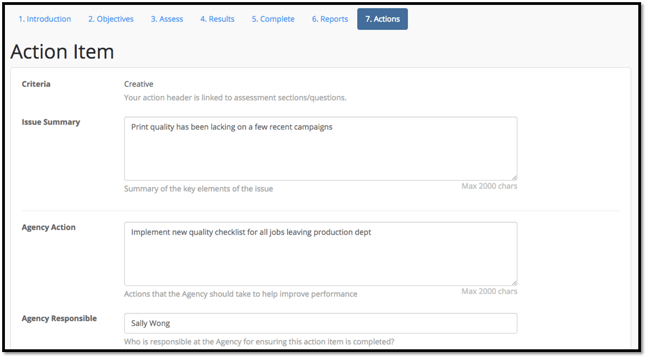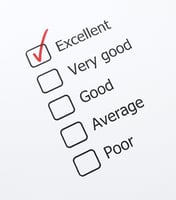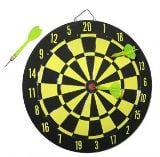These continue to be uncertain times, indeed ... as most advertisers and agencies continue to move...
How to make sure your evaluation program actually drives results
Agency evaluation programs are important but they do have challenges. One of the most important is designing what happens after the people working on the business have completed their questionnaire.
 The goal of an evaluation is to figure out which aspects of the client agency relationship are working and which ones are not. Once the results are in, advertisers need to make sure this information actually leads to better interactions with their agency partners.
The goal of an evaluation is to figure out which aspects of the client agency relationship are working and which ones are not. Once the results are in, advertisers need to make sure this information actually leads to better interactions with their agency partners.
Let's look at three ideas which advertisers can use to make sure their evaluation program drives changes to pursue the results they seek:
#1: Share the results
The sponsors of the program, the client team and the agency executives working on the business should all be able to access the results in some form. These stakeholders have contributed to the program, they’re invested in it and the results should be made available for review and decision making. Decideware’s Evaluation Manager provides all assessors with an immediate summary of their assessment. And the program managers should compile results for stakeholder groups, brief them on the results and invite them into discussions on the interpretation and actions arising. Decideware's Services team works with many clients to assist with this important phase of the process to share the findings.
"The results of agency evaluations should be packaged and shared with stakeholders to discuss and agree to next actions to drive change."
#2: Begin action planning
Engaging client and agency teams to use data to identify issues and opportunities and to solve problems together encourages the partnership to flourish in a collaborative environment. Joint participation in planning is also more likely to secure buy-in and long-term commitment. That said, each team will most likely want to address their internal opportunities more directly. In any case, a list of actions arising should be created and managed until completion ahead of the next review.
Actions should be prioritized so that the most important actions get done first. And you might consider recognizing success as actions are completed.
The next evaluation also provides an opportunity to review the prior action plan to consider if those actions actually made a difference. That process should be honest with an aim to ensure only those actions that produce results are progressed in the future. Chasing actions that don’t produce meaningful results can lead to burn-out and dissatisfaction.

Collaborative action planning helps grow the client/agency partnership
#3: Use specialist software
Working with a tool that's not fit for purpose often leads to frustration and inefficiencies.
Decideware’s Evaluation Manager is purpose-built for client agency evaluations and offers a built-in Action Planning feature to compile and manage action plans from within the system – with ease.
Summary
Agency evaluation can be challenging, but sharing the results, planning with your agency partners and conducting the program efficiently using the right tool (Decideware's Evaluation Manager) are three ideas to greatly increase the likelihood of success.
For more information on Decideware's Evaluation Manager, visit www.decideware.com or contact sales@decideware.com



